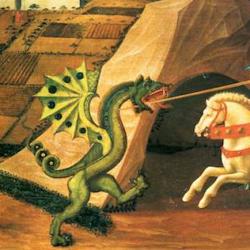Haiku is the most mockable poetic form. It seems easy, and a lot of bad haiku gets written. The best haiku exemplifies the nature of poetry, which I have described as a “concentrated excess of language.” Reading a well-constructive haiku is like viewing a scene in a flash of lightening or under a strobe light: The scene becomes visible then instantly fades, but leaves you with sensation of glimpsing a larger story in the midst of its unfolding. The words are still on the page when you read the poem a second time, but the second reading gives the same sensation, though perhaps it unveils a little more of the life that remains mostly in the shadows.
That is partly due to the visual-art character of haiku, its capacity to communicate immediately, almost like a painting, nearly without the sequential revelation normally associated with reading. Unlike a sonnet, its flashes of insight are taken in in an instant.
Gary Hotham is a very good haiku poet, and in his recent collection, Stone’s Throw, is full of flashes. Hotham has a knack for looking at the world backwards and upside down. Like:
hauled into air
the ocean escapes
the lobster trap
Or, the title poem:
stone’s throw
the rest of north
behind us
Some evoke a cozy melancholy that somehow emerges, miraculously, from three brief lines:
missed appointment –
late morning sun spreading over
the faded sofa
Or this, which captures the difference between presence and absence:
home
for Dad’s funeral –
not the same quiet in the kitchen
A blurb on one of his earlier books stated “Gary Hotham is haiku.” He still is.
(Full disclosure: Gary is a friend, and the copy of his book came with a personal letter and a signature.)















